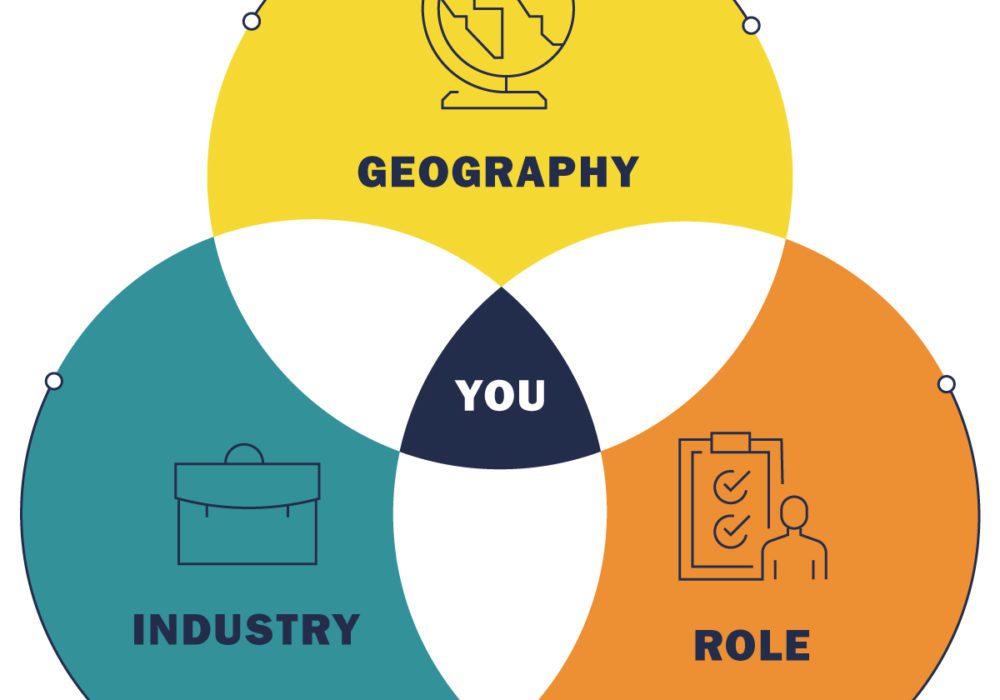“Begin with the end in mind” is the second habit from Stephan Covey’s seminal 1989 book The Seven Habits of Highly Effective People. This “habit” is based on the principle that all things are first created in the mind — we must first conceive a mental picture of what we want to happen.
When embarking on a job search, most people jump straight to resume updates and searching online for job postings. But these search tactics usually fall flat in the absence of an overall job search strategy — that is, having a clear and specific search objective.
To “begin with the end in mind” with a job search means you must first set an objective, to pause and consider some bigger questions: What do I want from my workplace? What can I contribute? What skills do I possess to both share and further develop? What will bring me satisfaction?
If you first define what you want, then go after it, you’re much more likely to end up in the right place. A clear objective supports and clarifies the other critical search tactics. It shapes your research (developing a set of targets) and helps you effectively articulate to others what you’re looking for (networking and interviewing).
In my career coaching practice, I use a simple visual framework to help Darden alumni articulate their objective. A job (current or desired) represents the unique intersection of geography, role and industry.
Let’s consider what goes into each of these components.
Geography is where the work is based. This component is the one that aligns most closely with your personal life and personal goals. You may be unwilling to relocate or, conversely, may be seeking a move, based on your specific family situation. Either condition is OK but presents a limiting factor when seeking a job change. And it’s not just the primary location of the job but also what the job requires to be successful. Is there travel (if so, how much)? Can the work be successfully conducted remotely? Knowing where you want to live, ideally, whether you can or want to relocate, how much travel you can realistically handle, and whether isolated or remote work is doable for you are all important factors in your geographic objective.
Role is what you do at work — your skills, what you’re great at, what you enjoy, and what you’re learning or improving. Role is often misunderstood as job title. You are not your title. Titles belong to org charts. They imply hierarchy and connection, but fundamentally, your role is a full description of your working self. A job title might be “Marketing Manager,” for example, but you might summarize the role you occupy as “I develop and execute strategic marketing plans for products” or “I manage a team that conducts market research.” The role may include many things, but at its simplest, a role summarizes how you want to spend your time working. Defining what you want in your next role is more than listing your prior accomplishments. You want to determine those things that give you the most satisfaction and allow you to achieve your goals.
Industry encompasses the broad to the narrow. For example, health care is large industry with a very broad scope that has a variety of categories and segments, including health care services and facilities, medical devices, insurance, pharma and so on. Knowing what broad industry is most interesting to you is a good start, but then you need to narrow the focus within the industry. It helps to think about these general organization distinctions: size (large to small), scope (regional, national, global, implied operational locations), structure (public, private, nonprofit), stage (mature, growth, startup), and operational focus (products, services).
Developing a clear and specific objective intersects three elements of Role, Geography and Industry. Even a senior leader with a distinguished track record will need a succinct objective. Here is one example from a Darden grad:
“I’m looking for my next opportunity to run a major global health care nonprofit. I am a fundraiser, an enterprise leader and entrepreneur. I align strategic planning with team performance to drive change; I equip strong teams and inspire others. I don’t plan to relocate, but understand that some travel will be critical to running a global organization.”
Do you need help building a clear and concise job search objective? The Armstrong Center for Alumni Career Services is here to help; reach out to us to schedule a session with a career coach.





